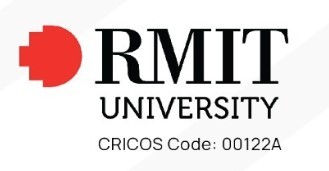
Bachelor of Science (Biotechnology)/Bachelor of Biomedical Science


Overview
Duration
FULL-TIME 4 YEAR
FULL-TIME 4 YEAR
Scholarship
YES
YES
Fee
AU$38,400
AU$38,400
Intake
FEBRUARY, JULY
FEBRUARY, JULY
Overview
- Biomedical science courses allow you to understand how the human body functions, and the responses of the body to various diseases, exercise, diet, internal disturbances, and environmental influences.
- You’ll learn how techniques in molecular biology and genetics are applied to diagnosing genes that cause cancer, making crops and livestock less vulnerable to disease, and making food safer.
- You’ll complete studies in cell biology, physiology, microbiology and molecular biology. You can also choose to study anatomy, neuroscience, cardiovascular biology, industrial microbiology, proteomics, pharmaceutical sciences and applied biochemistry.
Inquire Now
Career
- Graduates work in research, production and testing positions in government and private laboratories. High performing graduates from this program have been successful in obtaining admission to post-graduate studies in medicine.
- Potential employers include:
- government (including CSIRO and Melbourne Water)
- medical research institutes (including WEHI)
- hospitals
- universities
- private industry.
Entry Requirement
- To study this course you will need to complete one of the following English proficiency tests:
- IELTS (Academic): minimum overall band of 6.5 (with no individual band below 6.0)
- TOEFL (Internet Based Test - IBT): minimum overall score of 79 (with minimum of 13 in Reading, 12 in Listening, 18 in Speaking and 21 in Writing)
- Pearson Test of English (Academic) (PTE (A)): minimum score of 58 (with no communication band less than 50)
- Cambridge English: Advanced (CAE): minimum of 176 with no less than 169 in any component.
Popular Courses
Start your journey with landmark today!
Find your perfect course
Answer a few questions and
our course matcher will do the rest
Head Office
Level 5, IT Plaza
Kamaladi, Kathmandu
Tel: +977 14542781, 9845566225
E-mail: info@landmarkedu.com
Kamaladi, Kathmandu
Tel: +977 14542781, 9845566225
E-mail: info@landmarkedu.com
Sydney office
Level 2/552 Princess Highway,
Rockdale, NSW 2216,
Tel: +61 415 122 814
Rockdale, NSW 2216,
Tel: +61 415 122 814
Branch office
Sahidchowk, Chitwan
Tel: 056-590825
Tel: 056-590825
Mahendrachowk, Biratnagar
Tel: 021-590828
Tel: 021-590828
Level 2, Milanchowk, Butwal, Rupandehi
Tel: 977-71-591694
Tel: 977-71-591694
© Landmark Education. All rights reserved.


